How the Nevada presidential caucuses work
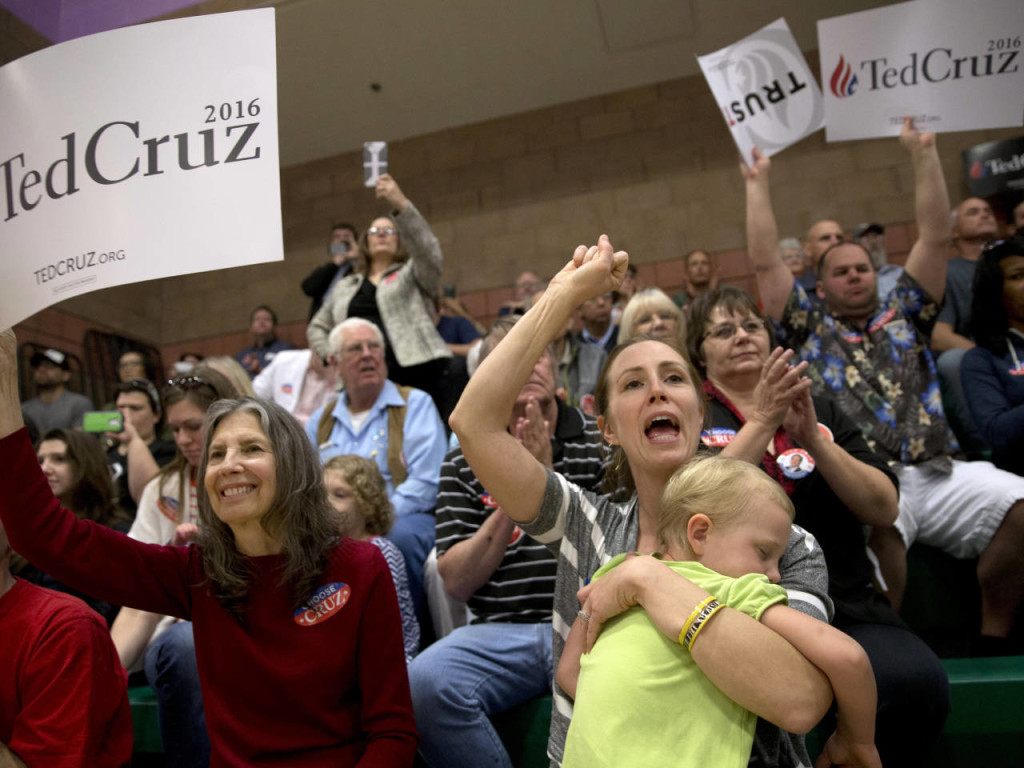
With a population of just 3 million, Nevada became one of the first four states in the presidential nominating process thanks to an effort a decade ago to add more diversity to the early voting calendar. Nevada is now a frequent stop for candidates in both parties, though it doesn’t draw nearly the amount of campaign traffic seen in Iowa and New Hampshire. A little history about the Nevada caucuses — which was held for Democrats on Saturday and will take place for Republicans on Tuesday — and a brief description of how the event works: HOW IT STARTED Eleven states applied to the Democratic National Committee in 2006 for early-state status. Nevada’s delegation pitched the state as a reflection of the country’s changing population. And it didn’t hurt that Harry Reid, the highest-ranking Democratic senator, lobbied for his home state. Ultimately, Nevada and South Carolina won out over Alabama, Arizona, Arkansas, Colorado, Washington, D.C., Michigan, Mississippi, Nebraska, West Virginia and Hawaii. About one-quarter of Nevada’s population is Hispanic, and registration leans just slightly in favor of Democrats. Republicans moved their Nevada caucuses up on the calendar so they don’t take place too long after the Democratic caucuses. ___ HOW IT WORKS Unlike a primary, which involves quick and solitary voting, caucuses generally involve a more public pronouncement of presidential preference. Caucus-goers mainly meet in schools, community centers and places of worship in Nevada’s 17 counties, and give speeches to try to persuade their undecided neighbors. Republicans have more than 1,700 precincts and more than 130 caucus locations. Nevada’s weeknight Republican caucuses are the fourth contest in the nation for the GOP, behind South Carolina, which took place last Saturday. Nevada’s late-morning Democratic caucuses held Saturday were third in line for their party, before South Carolina. ___ WHY ARE CAUCUSES ON DIFFERENT DAYS? Caucuses are run by the parties, not by any governmental entity, and Democrats and Republicans set their schedules somewhat independently from each other. National and local party officials work together to set the national nominating calendar. Nevada Republicans didn’t want to hold their caucuses on Feb. 20 because South Carolina had its primary the same day. Holding the two contests simultaneously could force candidates to choose between campaigning in one state or the other. The party also didn’t want to schedule caucuses next Saturday, just a few days before a dozen states vote on Super Tuesday, because candidates would be more likely to ignore small Nevada and focus on the bigger states casting ballots on March 1. ___ THE REPUBLICAN WAY Republicans and Democrats run their caucuses differently, including on the matter of voter registration. While Democrats allow same-day, on-site voter registration in an effort to open caucuses to a wider group of people, Republicans must register 10 days in advance of the caucus to participate. GOP officials argue that same-day registration opens the process to fraud because people might register and cast ballots in multiple locations before authorities could catch on to double-voting. Republican caucus-goers can listen to speeches from candidate representatives before marking their favorite candidate on a paper ballot, or they can ignore the speeches and simply turn in their ballot and leave. GOP caucuses must start after 5 p.m. on Tuesday and end before 9 p.m. Nevada sends 30 delegates to the Republican National Convention, and they’re awarded proportionally based on how each candidate performs on Feb. 23. ___ IS NEVADA A BELLWETHER? In the short history of early and contested Nevada caucuses, voters favored two nomination losers (Hillary Clinton and Mitt Romney in 2008) and one winner (Romney in 2012). The state is the first substantial test of candidates’ support with Hispanic voters. ___ WHAT ROLE DOES SHELDON ADELSON PLAY? The GOP kingmaker and billionaire Las Vegas casino mogul, who spent more than any other donor in the 2012 campaign cycle, hasn’t made it clear which candidate he’s supporting this time around. An Adelson spokesman said the family won’t discuss their political activities, while the latest Federal Election Commission records show Adelson has so far personally given to both Marco Rubio and Ted Cruz, as well as two candidates who have already bowed out: Jeb Bush and Lindsey Graham. While some have been tempted to draw parallels with Rubio’s recent endorsement by the Adelson-owned Las Vegas Review-Journal newspaper, the newspaper’s Feb. 5 editorial insists independence from Adelson input, and noted it met with Rubio back in October, before the paper’s secretive, much-scrutinized sale to the family. ___ A ROCKY ROAD Unlike in Iowa, caucuses are not a part of the political fabric of Nevada and political operatives must educate voters on how to participate. Campaigns and parties are holding many training sessions so voters won’t be intimidated by the process. Republican turnout was paltry in 2008 and worse in 2012, when only 33,000 voted. That’s a far cry from the 182,000 Republican caucus participants this month in Iowa, which is about the same size as Nevada. Caucus organizers also took three days to release official results from the 2012 Republican contest, after they had trouble with the count. Other states are eager to snatch away Nevada’s coveted “first in the West” position, and Nevada could lose early state status if organizers bungle the process or if the state continues to post unimpressive turnout numbers. ___ Republished with permission of the Associated Press.
Alabama delegation reacts to Barack Obama’s plan to close Gitmo “once and for all”
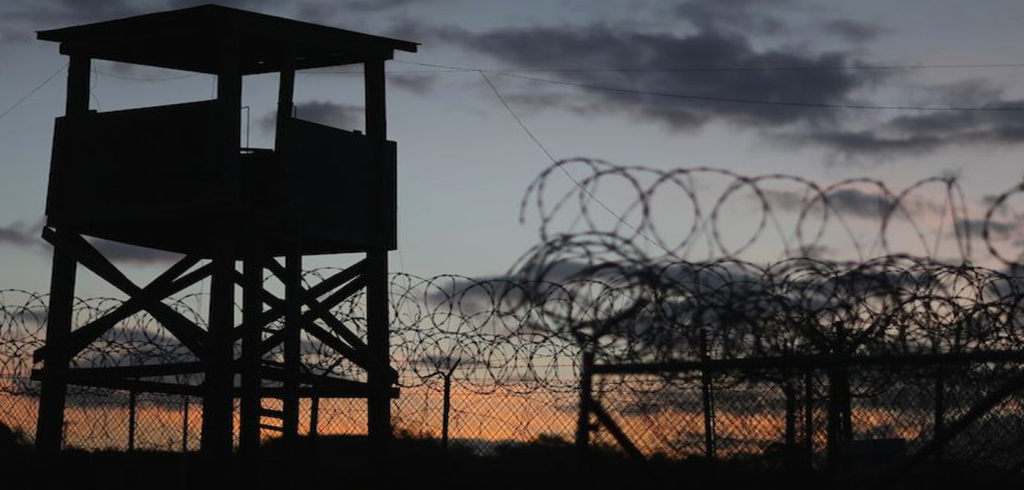
President Barack Obama Tuesday proposed to “once and for all” close the detention center at Guantanamo Bay, Cuba. The President delivered his plans to Congress, which also call to transfer remaining detainees to a facility in the U.S., though his plan does not specify where. It didn’t take long for the Alabama delegation to weigh in on the President’s plans: U.S. Sen. Richard Shelby: Since taking office in 2009, President Obama has vowed to act on his campaign promise to close the Guantanamo Bay detention facility. I believe that closing Guantanamo and moving radical terrorists onto U.S. soil is imprudent and reckless, especially when the President failed to detail any specifics to his so-called plan. The prisoners housed at Guantanamo pose a serious threat to our national security, and their release or transfer should not be centered on President Obama’s desire to score political points. Current law prohibits the terrorists held at Guantanamo from being transferred onto U.S. soil. I will fight against this dangerous and misguided decision by the Administration to blatantly disregard the law. U.S. Rep. Bradley Byrne (AL-01): The law couldn’t be clearer: the President cannot transfer detainees from Guantanamo Bay into the United States. Today’s announcement, like many others we have seen from this President, isn’t a serious proposal. It is short on details and fails to outline how this proposal would help keep the American people safe. Congress should just say no. U.S. Rep. Martha Roby (AL-02): Did not respond to request for comment. U.S. Rep. Mike Rogers (AL-03): President Obama’s plan to transfer many of the remaining detainees at Gitmo to U.S. soil is nothing more than nonsensical lip service to fulfill a campaign promise. While we are still waiting for a comprehensive strategy to defeat and destroy ISIL, Obama continues to push for 10,000 Syrian refugees to be resettled in the U.S. These examples demonstrate to me that he is not serious about the very real and dangerous threats posed by terrorists to our homeland. I will continue to strongly oppose any plan by Obama to close Gitmo or allow Syrian refugees on our soil. U.S. Rep. Robert Aderholt (AL-04): Did not respond to request for comment. U.S. Rep. Mo Brooks (AL-05): Did not respond to request for comment. U.S. Rep. Gary Palmer (AL-05): Closing Guantanamo Bay would be irresponsible and detrimental to America’s national security, and the authority to do so resides with Congress, not the President. Congress has consistently expressed the position, most recently in the National Defense Authorization Act, that those dangerous detainees should not be brought to facilities in our homeland. Our priority is to keep Americans safe and our enemies off American soil. I strongly urge the President to reconsider this plan and to put the safety of this great nation’s citizens first. U.S. Rep. Terri Sewell (AL-07): Did not respond to request for comment.
William J. Canary: State and federal proposals will provide a fair, level playing field for all Alabama workers

Article I of Alabama’s 1901 Constitution guarantees certain unique rights to our citizens. In addition to mirroring constitutional guarantees in the U.S. Bill of Rights, Alabama’s governing document bestows the right to have civil disputes heard in a court of law, the right to avoid imprisonment because of outstanding debts, and even the right to freely navigate public streams and waters. Missing among these, however, is one of the most important and fundamental rights for most of us – the right to work and provide for our families. The Alabama Legislature is working to correct that oversight. During a high-water mark of labor union activity more than 60 years ago, legislators in Montgomery noticed some disturbing trends. Non-union workers in certain plants, factories, and industries were being intimidated or pushed out by union members who wanted a “closed shop” workplace, and potential industrial prospects were reluctant to locate here in order to avoid the sometimes outrageous demands of organized labor. To combat these threats to our economic development progress, in 1953 the Legislature passed a right-to-work statute. But today, we are seeing history repeat itself as union activity is once again on the rise and threatening our ability to create jobs and opportunity. Just two months ago, the United Auto Workers were able to gain a foothold in organizing the Volkswagen plant in Chattanooga, Tenn. Closer to home, workers at the Golden Dragon Copper facility in Wilcox County moved to join the United Steelworkers union by a razor-thin 75-74 vote. As a result, it is time for Alabama to enshrine the right to work in our Constitution and send a loud message to economic developers and potential industrial prospects that we remain open for business. The provisions of the amendment are simple: it further establishes Alabama as a right-to-work state with constitutional protections that prevent labor organizations from forcing employees to join. At the same time, the amendment prevents employers from denying union membership to workers who wish to join. In some states, labor unions force non-union employees to pay a “fee” in lieu of membership dues because they, too, could potentially benefit from any collective bargaining negotiations with management. Alabama’s proposed constitutional amendment prohibits that practice. The measure also prohibits labor unions from creating monopolies and preventing other organized labor groups from representing workers. The Alabama House has passed the constitutional amendment and sent it to the Senate for consideration. If approved, the amendment will appear on the November 2016 General Election ballot for ratification. Similar efforts on the federal level are progressing. America’s labor laws have not been substantively reformed since 1947, but our nation’s economy and workforce have since changed significantly. For that reason, the federal Employee Rights Act seeks to pull American labor relations firmly into the 21st Century. Because of its commonsense reforms, the Employee Rights Act commands strong cross-party appeal and enjoys high favorability, even in union households. Currently, union members have to opt out of seeing their union dues used for political purposes, and they are often forced to give up certain workplace protections in the process. Far too often, union members see their dues being used to support the election of candidates who are on the opposite extreme of their own political leanings. This federal proposal would make political spending purely optional and require unions to get positive consent from members before proceeding rather than requiring them to opt out. It also guarantees secret ballot votes on any initial decision to join a union, which means employees can vote their consciences without fear of reprisal from union bosses. Both of these fair, reasonable, and level-headed measures being considered by the Legislature and Congress are designed to ensure that union and non-union workers and businesses may peacefully coexist in a calm workplace environment, which will help grow new investments, new jobs, and new opportunities. Because without jobs and the workers they require, the question of union or non-union quickly becomes moot. William J. Canary is President and CEO of the Business Council of Alabama.
Jim Zeigler pushing constitutional amendment to prevent “raid” of state parks funds
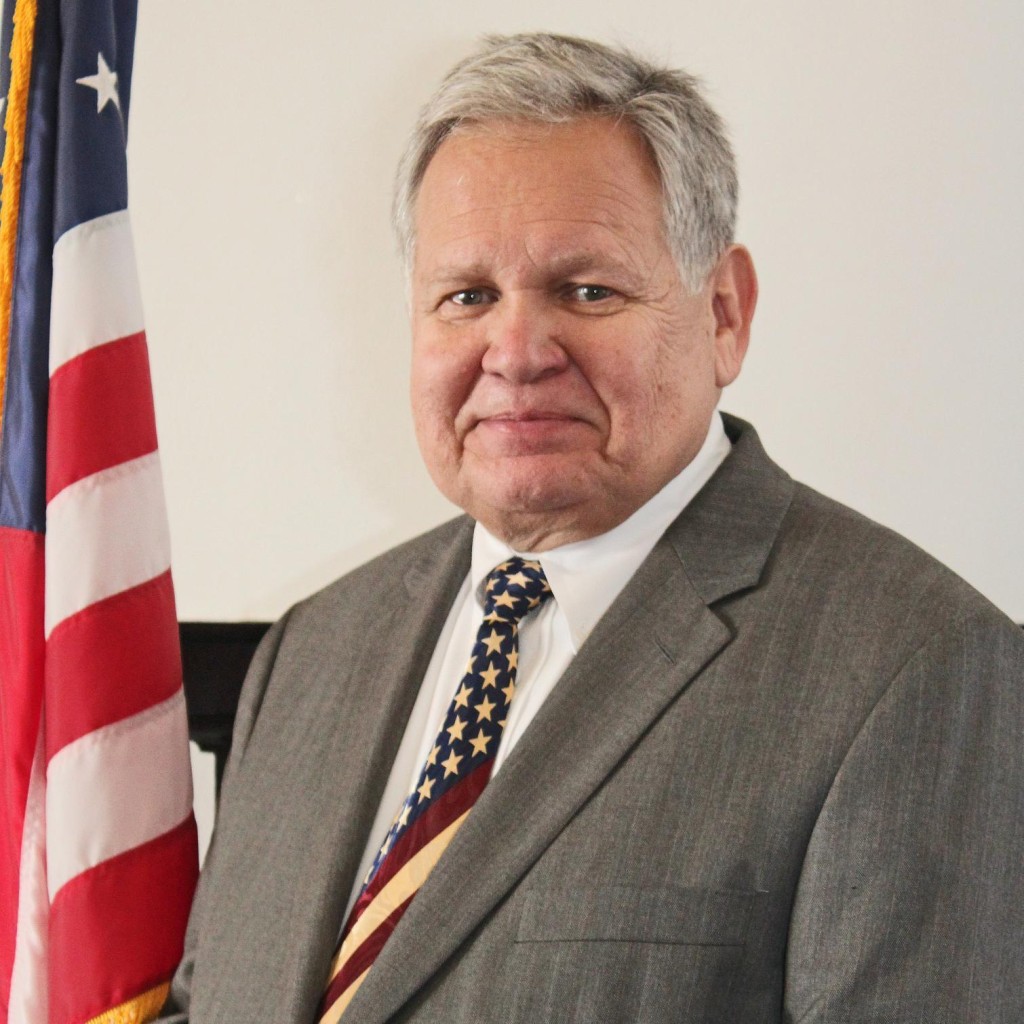
State Auditor Jim Zeigler may occupy the executive branch, but that isn’t stopping him from getting involved in his favored issues during Alabama’s ongoing Legislative Session in Montgomery. Zeigler released a statement Monday night declaring his support for SB 260, a bill that would “stop the raiding of state parks revenues to fund other programs,” as Zeigler put it. Specifically the bill – sponsored by Republican Sen. Clay Scofield – would call for an amendment to the state constitution that would require revenues earned by the parks to stay in the parks’ operating budget. In recent years, state budget writers and Gov. Robert Bentley have chosen to close nearly half a dozen parks and reduce services in others, despite the parks’ general solvency. Funds from the parks have sometimes gone to subsidize other priorities through the Legislature’s general revenue fund. State parks have long been a priority for Zeigler. He recently accused the Bentley administration of mismanaging the parks system and using it as a cudgel against conservatives. “SB 260 is the first step in my plan for the state parks,” said Zeigler. “The parks internally generate around 85 percent of the money needed to operate. With tweaking, the parks can be self-funding, using NO tax dollars — requiring no money from the financially-strapped general fund. The Bentley administration would no longer be able to use the state parks as a political football, threatening closures if tax increases are not passed.”
Donald Trump repeats dubious posts, says ‘it was just a retweet’
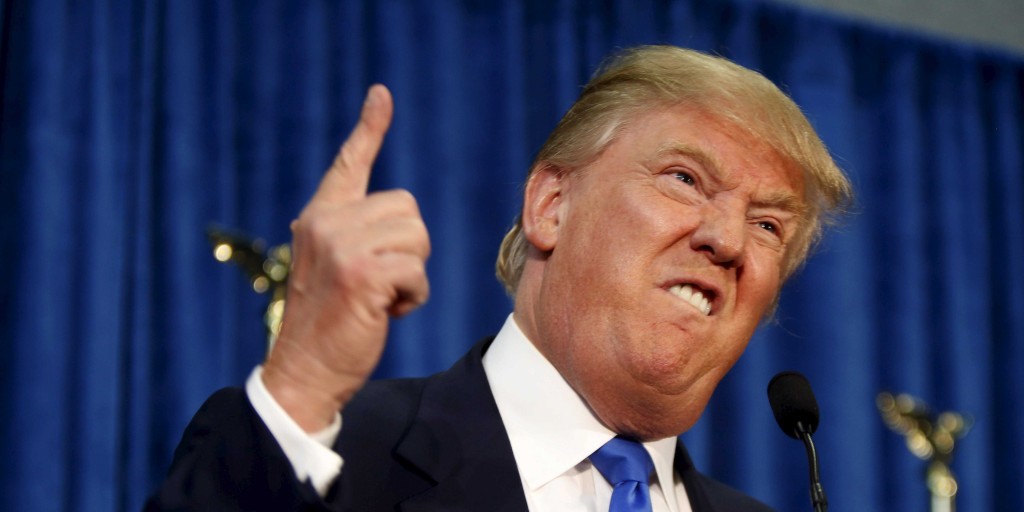
Donald Trump has repeated inaccurate and racially charged crime statistics, reposted pledges of support from white supremacists and retweeted dubious questions about the citizenship of his presidential rivals to an online following of more than 6 million people on Twitter alone. His response when challenged? To dismiss it all as nothing more than harmless “retweets.” Unlike any presidential candidate before him, Trump has fueled his campaign for the Republican nomination with a seemingly endless series of eyebrow-raising statements. It’s a strategy unavailable to a conventional politician but seemingly tailor-made for the billionaire businessman, TV celebrity and master marketer. “We’ve gone from a 24-hour news cycle to a 24-second news cycle,” said GOP consultant Kevin Madden. “So right when you think Trump is about to endure a concentrated level of scrutiny for a false statement or the latest outrage, he is on to the next controversy.” Yet Trump’s pattern of repeating things that are false, or just unseemly, and then refusing to take responsibility, would undoubtedly pose a challenge should he move into the White House – where a president’s casual utterance or late-night tweet could move financial markets or spark a diplomatic incident. Trump’s latest example came on Saturday, hours before he won the South Carolina GOP primary to cement his status as the Republican presidential front-runner. He quoted a supporter on Twitter who was questioning rival Marco Rubio‘s eligibility to run for president, even though the Florida senator was born in the U.S. “It’s a SLAM DUNK CASE!! Check it!” read the tweet, which linked to a video on a conservative website featuring an unidentified woman arguing that only people who with American parents qualify as “natural born.” Rubio’s parents were immigrants from Cuba who didn’t become naturalized citizens until a few years after his birth. Asked about the retweet in an interview on ABC’s “This Week” the next day, Trump said he hadn’t given the issue much thought. “Honestly, I’ve never looked at it,” he said. “Somebody said he’s not. And I retweeted it. I have 14 million people between Twitter and Facebook and Instagram, and I retweet things and we start dialogue and it’s very interesting.” Unabashed, Trump said, “Maybe that’s why I have 14 million people” following him and others “have 200 people.” He used the same explanation earlier this month after he retweeted, then promptly deleted, a message from the account of a neo-Nazi, and in November, when he retweeted false crime statistics that dramatically overstated the number of whites killed by blacks. “Bill, am I gonna check every statistic?” he told Fox News host Bill O’Reilly. “All it was is a retweet. It wasn’t from me.” Trump has even taken to using the explanation for comments he makes in person. Asked about his decision to repeat the shouts of a supporter who called Texas Sen. Ted Cruz a “pussy” at a Trump rally the night before New Hampshire’s primary, Trump replied: “It was like a retweet. I would never say a word like that.” His rivals aren’t impressed. “This is a game he plays. He says something that’s edgy and outrageous, and then the media flocks and covers that and then no one else can get any coverage on anything else,” Rubio said this past Sunday on ABC’s “This Week.” Trump’s brand, built on the premise that he’s the tell-it-like-it-is candidate, appears to have inoculated him from the consequences another candidate might face. “You’re talking about conventional wisdom and you’re talking about conventional campaign tactics in an unconventional campaign cycle,” said Hogan Gidley, who served as a top aide to Mike Huckabee‘s recently suspended campaign. “Those things just don’t matter. They’re so small in the big scheme of things that I don’t think anything like that is going to catch up to Donald Trump.” But what if Trump wins the White House? While President Barack Obama is typically careful with his language, some of his more candid moments have underscored the power of a president’s every word. In the closing moments of a 2009 news conference, Obama was asked about the arrest of a black Harvard professor at the professor’s home. The president inflamed the debate by saying the police acted “stupidly” – one of Trump’s favorite words. The issue consumed the White House for days, overshadowing Obama’s planned agenda and leading the president to host a “beer summit” for the professor and arresting officer. In 2012, it was a moment of private candor that caused the White House heartburn. During a meeting with then-Russian President Dmitry Medvedev, an open microphone caught Obama saying he would have more “flexibility” on the issue of missile defense after his re-election. The comment led Republicans to raise questions about what other promises Obama was making for the time when he no longer had to worry about facing voters. For his part, Trump has repeatedly said he would act differently as president than as a candidate – including on social media. “If you become president, it has to be toned down a lot. I fully understand that,” he said in South Carolina last week. “I’m an intelligent person. I’ll tone it down a lot.” Republished with permission of the Associated Press.
Robert Bentley declares statewide State of Emergency ahead of storms

Gov. Robert Bentley issued a statewide “State of Emergency” Tuesday in anticipation of strong storms, which are expected to produce flash flooding and tornadoes across Alabama, according to the National Weather Service. “I was briefed on the severe weather by Alabama Emergency Management Agency (AEMA) Director Art Faulkner this afternoon, and based on the evidence from the National Weather Service, it is necessary to issue this state of emergency to ensure state resources are available and can be deployed in a timely manner, if necessary,” Bentley said in a press release. “Alabamians are no stranger to severe weather, and as state agencies are preparing, I encourage all Alabamians to take this threat seriously and prepare for impact of severe weather. Now is the time for citizens to ensure they have a method to receive the latest weather updates and know the locations of the nearest community safe rooms. It is proven that community safe rooms save lives.” Bentley further ordered the State Emergency Operations Center in Clanton to activate to level three, a designation which allows AEMA staff to monitor weather across the state. The declaration encourages school authorities to make decisions regarding closing schools and offices and allows for those schools to move for waivers in regard to lost calendar days. The declaration further states that it is unlawful to charge exorbitant rates for commodities during the emergency.
Marco Rubio builds momentum; Ted Cruz struggles
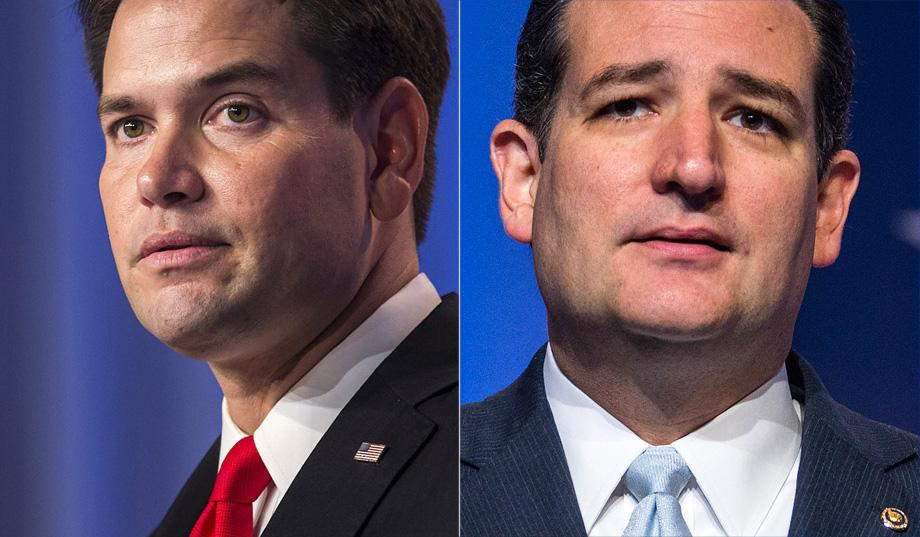
Marco Rubio amassed increasing support for his candidacy while Ted Cruz’s campaign showed signs of struggle as Republican presidential candidates crisscrossed Nevada on Monday on the final day of campaigning ahead of the state’s GOP caucuses. Cruz told reporters Monday he has asked his campaign spokesman, Rick Tyler, to resign for tweeting a story that falsely alleged Rubio insulted the Bible. “We are not a campaign that is going to question the faith of another candidate for president,” he said, calling Tyler “a good man” and noting that he deleted the tweet once he discovered it was false. Tyler did not return telephone, text or email messages left by The Associated Press seeking comment. It’s not the first time that Cruz’s campaign has been accused by rivals of using questionable tactics. Cruz apologized to GOP hopeful Ben Carson earlier this month after his campaign promoted a news story suggesting that Carson was getting out of the race. Cruz’s campaign also has acknowledged creating a website that used a computer program to create a fake picture of Rubio shaking hands with President Barack Obama. Speaking during a campaign stop in Elko, Nev., earlier Monday, Rubio criticized Cruz for the incident and asked whether Cruz would fire anyone involved. “It’s every single day something comes out of the Cruz campaign that’s deceptive and untrue, and in this case goes after my faith,” Rubio told reporters when asked about the incident. “I guess one of their spokespersons apologized, and I accept their apology.” Republican front-runner Donald Trump lashed out at Cruz over Twitter on Monday, saying that Cruz “has now apologized to Marco Rubio and Ben Carson for fraud and dirty tricks. No wonder he has lost Evangelical support!” He reiterated his calls for disqualifying Cruz because of “his fraudulent win in Iowa.” Trump was scheduled to have two rallies in Nevada – one in Elko and another later in Las Vegas. Meanwhile, establishment heavyweights continued to back Rubio, with many saying they see him as the candidate who can unite a disharmonious Republican Party. Arkansas Gov. Asa Hutchinson and Utah Sen. Orrin Hatch were the latest to endorse Rubio. Former Sen. Bob Dole told ABC News on Monday that he, too, had been backing Bush, but he’s now supporting Rubio. Ohio Gov. John Kasich, who finished second in New Hampshire’s Republican primary, won the endorsement of Tom Ridge, a former Homeland Security secretary and Pennsylvania governor. Kasich’s campaign says Ridge is signing on as a national co-chairman. Democratic presidential hopefuls coming off a tight battle for Nevada kicked off the week on opposite ends of the country Monday. Hillary Clinton was fundraising in northern California, while Bernie Sanders had a rally in Massachusetts, another Super Tuesday state. South Carolina votes in the next Democratic primary Saturday. Republished with permission of the Associated Press.

